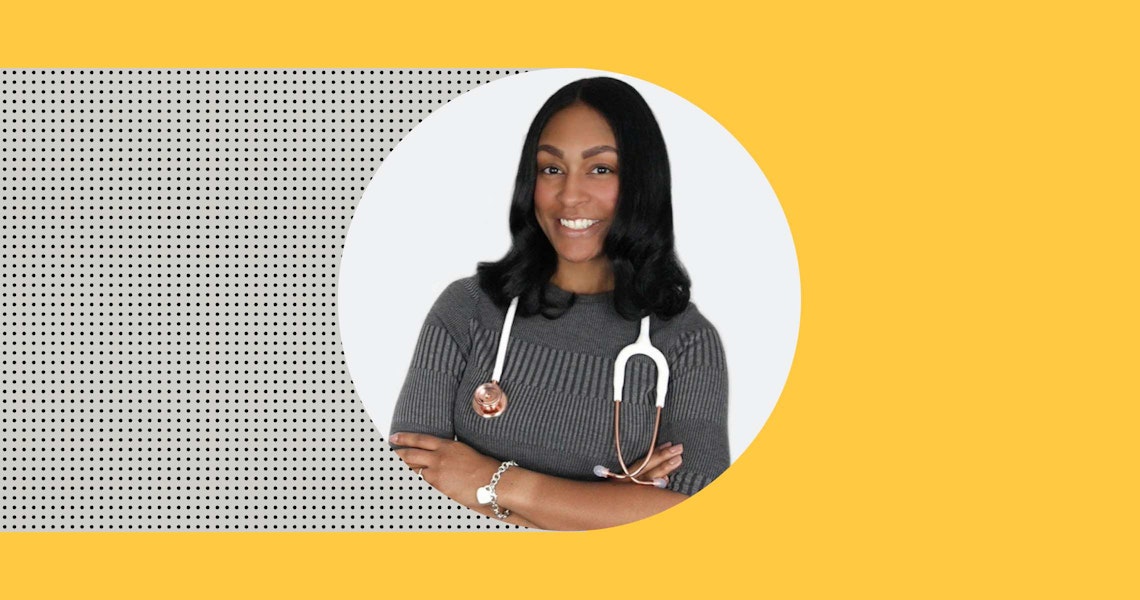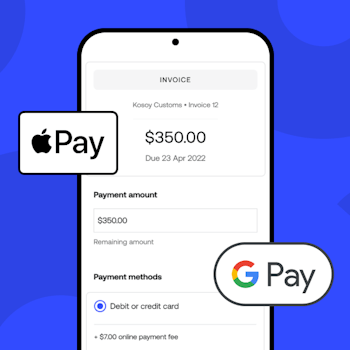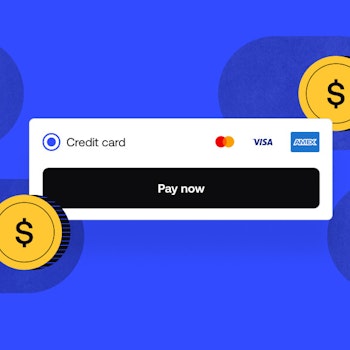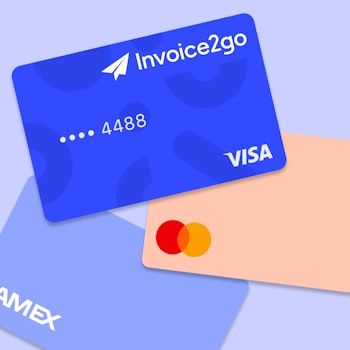
Q&A with Grow Winner Shanika Valcour-LeDuff, owner of Labor and Love
Two months ago, we announced the winners of Grow – our $200,000 program to support minority-led small businesses. From over 31,000 applications, we selected 20 awardees from traditionally marginalized communities representing the passion, perseverance, and dedication of the small business spirit. We were thrilled to include Shanika Valcour-LeDuff, owner of Labor and Love, among our Grow winners.
Labor and Love offers maternal-child services to the predominantly Black communities of New Orleans, Louisiana. Their mission is to educate, advocate, and empower women and their families through doula support before, during, and after childbirth. Because of the financial restraints of many families in the community, Labor and Love used Grow funds to provide high-quality free services to the community.
Labor and Love’s mission to support women is urgent given the rising maternal mortality rate in the United States. According to the CDC, Black women are three times more likely to die from a pregnancy-related cause than White women. Many factors contribute to this disparity, including healthcare quality, underlying health conditions, and racism. However, there is significant evidence that working with a doula can reduce childbirth complications and improve overall outcomes.
A report released by March of Dimes cited that women – especially women of color – who worked with a doula had less anxiety and depression, shorter labor times, lower healthcare costs, and fewer cesarean sections, a contributor to maternal morbidity and mortality. Blue Shield also reported that doulas help address maternal and child health inequities through their education and support.
We recently got to catch up with Shanika over Zoom to talk more about Labor and Love and how they continue to provide a supportive, health professional-led community for women. Shanika spoke candidly, sharing her own struggles adapting to life as a new mother, how she built her business through friendship and community, and how she and her community remain resilient through pandemics, natural disasters, and other hardships.
I’d love to learn a little about your background and how Labor and Love came to be.
I was born and raised in New Orleans. New Orleans is a city of beautiful culture, and it’s a great experience to live here and to visit. But to me, especially after the storm last year, it’s also the city of always coming back. I’ve felt that way more and more since Katrina.
In certain areas, access to care is easier than in others. In communities like the one where I grew up in New Orleans East – a predominantly Black community – there aren't many resources or available help. Those are the communities that speak to my heart.
I worked as a labor and delivery nurse for a good amount of time and always loved what I did. When you do this work, you participate in the most beautiful moment of so many people's lives as your job.
I always waited for my time to become a mother, but when the time came, it was much harder than I thought it would be – especially considering that I worked in the field and had helped so many others. Also, when I got home with my daughter, the postpartum period and breastfeeding were so difficult, even though these were things I was educated on and helped others get through. So I thought to myself, if I'm trained in these areas and having such a difficult time, how hard is it for other women to adjust to being a mom once they get home with a newborn?
And so, Labor and Love was founded to help women during a time that’s supposed to be beautiful but can also be deeply challenging.
Tell me more about your team and some of the services you offer at Labor and Love.
We offer free and paid services. Some clients pay out of pocket because our services are not yet covered by insurance. We also have a huge number of women from underserved communities who greatly need services because of maternal mortality rates and health disparities among people of color. These communities just don't have the resources, and it was essential for me to be able to give them the support they need to make that part of their life a little easier.
Thank goodness it is not me running this business alone. We have a fantastic team of doulas and OB-trained nurses who support women at whatever phase they need – doula, lactation, or postpartum support. Some people don't necessarily want the whole doula service but need a little assistance at home once they get into the postpartum period.
The first person who joined the team was Jazmin – I don't know what I would do without her. We met before COVID at a vision board party. During the party, everyone talked about their vision for the coming year, and Jazmin said she was a new doula looking forward to getting into birth work. And of course, I'm sitting there, like, “Hey! Let's talk some more. Let me take you under my wing so I can see what you can learn and where you want to go with it.” We’ve been inseparable since.
Our team has continued to grow through mutual friends, referrals, and our growing network of people we’ve cared for. It’s all happened organically, and we feel like a family.
What gives you the greatest satisfaction in your work?
The moments that give me the most satisfaction are watching all of the babies and moms grow. There's not one mom we've worked with that doesn't stay in touch – even if it's just through Facebook or Instagram sending a few pictures here and there. We get to see moms thriving in motherhood, and we get to see the babies grow up – that's my favorite part.
When applying to Grow, you talked about the challenges of providing services during the pandemic. Can you elaborate on that or another challenge you’ve faced in your business?
Recently with Hurricane Ida, the challenge was that many people were displaced and returned to even fewer resources than before. The first week I got home after Ida, I drove around delivering supplies to people. We bought whatever we could – diapers, wipes, and things like that – to support people in the best way possible. Sometimes helping mothers and their babies meant connecting people to other places or organizations we’re familiar with.
There are always challenges when you’re serving the community, whether it's people getting displaced, people lacking access to services or the pandemic. It’s inevitable and we do the best we can.
Is there a recent moment in your work that stands out to you?
Some of the work has gotten heavy lately. However, I had a really beautiful birth two weeks ago, and I just finished a follow-up visit this past week. It was a good experience because it was a mom who was initially very afraid with the recent climate with Black maternal mortality rates.
In her prenatal appointment, I sat with her and her partner to plan her birth and ensure it was a great experience. I was helping her make decisions like if she wanted to have an epidural and her main concern was: please, don't let me die. It was heavy.
However, she had a beautiful birthing experience and a beautiful baby – and she's adjusting well to the postpartum period. Seeing her thriving and happy with the outcome I knew she was so nervous about – that’s why I do what I do.
Is there something you know now that you wish you knew back when you started?
You have to be ready. You often have to drop something important to do work that's also really important – but it all ends up working out. Many people get into it ready for the butterflies and the rosy shade moment – and there is that. But it's also a lot of hours – sometimes labor can be lengthy. You have to be ready to adjust and make sure your lifestyle has the flexibility to accommodate those moments. But when you're doing work you love, it doesn't feel like a sacrifice.
What are some of your hopes for Labor and Love?
Just to be able to do more – to be a safe space for moms to come in, whether it's just to hang out or get support and assistance. Motherhood definitely is a sisterhood and a community. When women can connect with other women in similar stages, they can feed off each other's struggles and share advice from their own experiences. It helps to get different perspectives. I’m looking forward to COVID really being controlled so we can get together in person in larger groups.
Related Articles

How to accept credit card payments on Invoice2go in 3 simple steps

Accept payments online via Apple Pay and Google Pay

Must-not-miss write-offs as you wrap up 2022 year-end finances

5 ways accepting credit and debit card payments helps your business stay resilient

4 easy ways to increase cash flow today

What is Small Business Saturday and why is it important?
The features and surprising benefits of a well-designed packing slip
